
GOLD Lactation Online Conference 2023
The GOLD Lactation Online Conference is the largest Annual Breastfeeding Conference in the world. Join us for an amazing program of thought-provoking topics and speakers who will expand your knowledge and skills, combined with community and connection!
Our 2023 conference is packed full of fascinating topics such as new ways of thinking about fundamentals like latch & positioning and breast & nipple pain, along with new topics such as dynamic taping of the breast for breast abscess, breastfeeding and fertility, the many colours of breastmilk and when to worry, primitive reflexes and their impact on breastfeeding, and so much more! Join speakers Carmela Kika Baeza, Sejal Fichadia, Treasure McGuire, Cecília Tomori, Lucy Ruddle, Lyndsey Hookway and so many other amazing minds for what promises to be a thought-provoking conference that will expand your knowledge and skills!
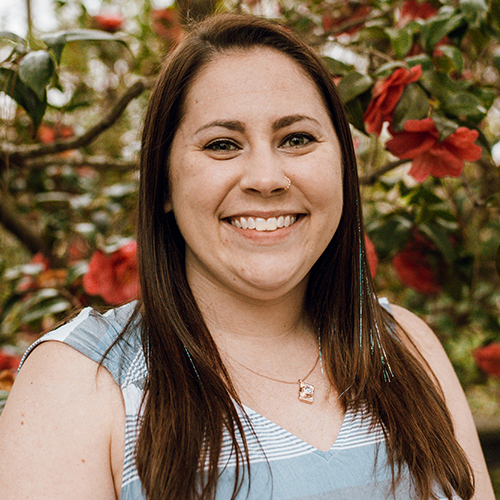

Hope became an IBCLC in 2017, completed her PhD in nutritional biochemistry in 2018, and became a Registered Dietitian Nutritionist (RDN) in 2020. In 2022, she completed the FARE Certificate of Training in Pediatric Food Allergy in order to provide comprehensive care to breastfeeding and formula feeding families struggling with food allergies. In addition to owning and operating Hope Feeds Babies in Rock Hill, SC, Hope is employed full time at Winthrop University as an Assistant Professor and the Graduate Program Director in the Department of Human Nutrition. At Winthrop, Hope runs a research lab that focuses on helping mothers to reach their infant feeding goals, improving access to human milk, and analyzing the nutritional content of human milk.
1. List the steps associated with survey content and face validation
2. List the top three reasons primary care providers refer their clients to lactation support
3. Describe the barriers primary care providers report for access to lactation support
In 2020, only 25.6% of dyads in the US were exclusively breastfeeding at six months. One contributing factor to low exclusivity rates is the absence of a specialized physician who provides dyad care. Consequently, pediatricians and obstetricians provide lactation education and support in the primary care setting. Little is published about perceptions of and roles related to lactation practices in primary care settings, and no survey instrument exists to investigate these topics. A 58-question survey was developed, validated, and subsequently distributed to primary care providers (PCPs) in the field of maternal and child health to help define current perceptions and practices related to lactation care and referrals. In this pilot study, responses were received from 40 PCPs in the Southeastern United States and included in the analysis. Results highlight areas of strengths and areas for improvement in current practices of PCPs with regards to lactation services. These data can be utilized as a framework for developing interventions and/or programs that will improve lactation care in primary care settings.
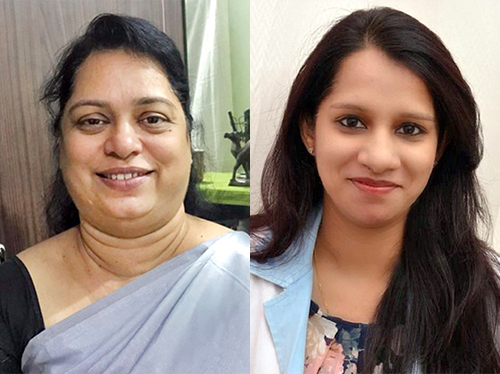

Ruth Patterson is Cloud Nine's P I O N E E R & Most Sought Lactation Specialist with 33 years of rich experience - currently practicing at Jayanagar C9, Bangalore-India and a visiting Lactation Consultant with 9 other Cloud Nine branches locally. She also heads the 24 Pan India Cloud Nine Hospitals as the Manager Lactation.
Ruth's 30+ years of rich experience includes maternity, allied health and nursing care, both in rural and urban sector in India & Abroad. Her exclusive 18 years of experience in Lactation services, she has acquired immense practical knowledge in the last decade to identify most critical disorders of mother and babies during breastfeeding stage. She is acclaimed to have expertise in a lesser-known art of re-lactation and induced lactation.
Ruth is known for her ability to identify the most critical issues in Breastfeeding and restore/re-initiate feeds. She is acclaimed for the use of Dynamic Taping (only available at Jayanagar C9) that arrests/prevents breast surgery/abscess. This Dynamic Taping practice, alongside, a Gynecologist, Pediatrician and Physiotherapist at Cloud Nine, is patented.
Ruth is a well sought out person for patient hearing and provides her expert comments in News columns/Media and also delivers guest lectures.
Dr. Shazia Shadab (PT) is the HOD of the Cloud nine physiotherapist department (PAN-India). She has 10 years experience and has been exceptional in her career with constant learning of new skills and improvising in her services.
She has multiple articles published in acclaimed newspapers
and many international certifications affiliated with her name like
pelvic girdle dysfunction, labor mechanism, and has done basic advanced certification in dynamic tapping to name a few. She also has pursued her post-graduation in research methodology after her bachelor's in physiotherapy.
She has always been keen to learn how to progress in a variety of different treatment approaches to find better results. This has helped her and her team to develop an intervention to prevent breast abscess with no surgical approach and has been granted a patent on "a device to promote feeding and scar-free treatment of breast abscess treatment during lactation".
She has worked along with professionals like Dr. Kishore Kumar, Dr. Prakash Kini, and Ruth Patterson, and has treated more than 100 patients suffering from breast abscesses without any surgical intervention. This would be an exceptional resource to help and provide better care.
She has extensive expertise in not only treating but also preventing multiple
musculoskeletal conditions during pregnancy and postpartum. She has been awarded the ABCD (Above and Beyond the Call on Duty) Award for her unwavering and selfless dedication to her patients.
1. Describe early intervention in preventing breast abscess during lactation by successfully treating pathological engorgement and blocked ducts.
2. Explain the biomechanical principles behind dynamic taping as a treatment method
3. Explain the Dynamic Taping of Breast for non-surgical management of lactational breast abscess
"Lactational breast abscess is a common problem during breastfeeding. Surgical treatment of breast abscess involves maternal child separation and discontinuation of breast feeding. Surgical intervention with its inherent anxiety and probable unwanted side effects can deprive the lactating parent and baby of innumerable benefits. Non-surgical therapeutic modalities can potentially circumvent these problems. Dynamic taping with the help of a physiotherapist is a potential non-surgical intervention. This presentation presents the results of an observational, cohort study which was conducted in 20 consenting mothers with breast abscess attending an out-patient services tertiary maternal and neonatal unit. The mothers were administered two layers of dynamic tape as a single long segment on the breast avoiding the areola in an outward radiating direction to optimize lymphatic flow. Treatment was considered successful if there was resolution of the breast abscess with or without natural oozing."


Meghan McMillin holds a Master’s Degree in Human Nutrition from the University of Illinois at Chicago. She has been a Registered Dietitian Nutritionist (RDN) since 2013 and became an International Board Certified Lactation Consultant (IBCLC) in 2019.
Meghan spent 5 years working clinically in the NICU, pediatric floor and women’s units of a local hospital. In 2019, Meghan started her own private practice and consulting company, Mama & Sweet Pea Nutrition, with a focus on postpartum and infant care. The mama to two young kids with food allergies, helping other families manage food allergies, whether it’s while breastfeeding, during the introduction of solids, or later in childhood, is her passion.
Meghan is a member of the International Lactation Consultant Association and the United States Lactation Consultant Association. She enjoys sharing her knowledge through social media and public speaking. Meghan is the coauthor of the eBook What To Eat When Your Baby Can’t Tolerate Milk, Soy, or Egg Protein; Nutrition guidance for avoiding milk, soy, and/or eggs while lactating.
Meghan has presented both nationally and internationally including for GOLD learning, the National WIC Association and the Academy of Nutrition and Dietetics. In 2020, Meghan was awarded the Emerging Professional in Women's Health Award from the Women's Health Dietetic Practice Group of the Academy of Nutrition and Dietetics.
Topic: Popular Diet Trends: Impact and Safety During Lactation - [View Abstract]
1. The participant will be able to describe 2 different types of food allergies.
2. The participant will be able to explain lactation's role in allergy risk and prevention.
3. The participant will be able to list 3 common allergy symptoms that may present in a breast milk fed baby.
4. The participant will be able to list 3 feeding issues that may mimic allergy symptoms.
5. The participant will be able to describe the care plans and referrals necessary for families with a baby with food allergies.
Though the overall risk of the development of food allergies in infants remains very low, prevalence has been increasing. With that increase, we are also seeing more concerns for food allergies in the exclusively breast/chest fed infant. This presentation aims to educate on the different types of food allergies (IgE mediated vs non- IgE mediated) and their symptoms commonly seen in a breast/chest fed infant. We’ll review the current feeding recommendations for an infant that presents with food allergies including maternal elimination diets. This presentation will also explore the role of the lactation consultant in managing food allergies and supporting our families that face this challenging situation.


Lyndsey is an experienced paediatric nurse, children’s public health nurse, International Board Certified Lactation Consultant, Holistic Sleep Coach, researcher and responsive parenting advocate. She has worked in hospitals, clinics, the community and within clients’ homes for 20 years, serving within the UK NHS, in private practice and voluntarily.
The co-founder and clinical director of the Holistic Sleep Coaching program, Lyndsey regularly teaches internationally, as well as providing mentorship for newer sleep coaches. She is passionate about responsive feeding, gentle parenting and promoting parental confidence and well-being.
With Professor Amy Brown, she is the co-founder of Thought Rebellion – an education and publishing company seeking to inspire, challenge and equip professionals and writers in the parenting, lactation and perinatal space with an evidence based revolution.
Lyndsey is currently a PhD researcher at Swansea University, exploring the needs and challenges of medically complex breastfed infants and children. In 2019 she set up the Breastfeeding the Brave project to raise awareness of the unique breastfeeding needs of chronically, critically, and terminally ill children in the paediatric setting. The mother of a childhood cancer survivor, she often talks about the impact of chronic serious illness on families, and seeks to support other families living through a serious childhood illness.
Lyndsey is a respected international speaker and teacher, and regularly speaks out against the dominant sleep training culture, as well as advocating for the rights of families to receive high-quality, compassionate and expert support. She is the author of Holistic Sleep Coaching (2018), Let’s talk about your new family’s sleep (2020), Still Awake (2021), Breastfeeding the Brave (2022) and co-author of The Writing Book (2022).
Topic: Breastfeeding Children with Cancer - [View Abstract]
Topic: More Support in a Coffee Shop Than in the Hospital: Experiences of Breastfeeding Children With Medical Complexity - [View Abstract]
Topic: Supporting Families With Sleep While Optimising Attachment and Responsive Feeding - [View Abstract]
Topic: You Can't Sleep With Your Foot On The Gas Pedal: How To Improve Sleep By Tapping Into Calm - [View Abstract]
1.Explain 2 ways the paediatric population is distinct from maternity and neonatal clients in terms of management, structures and policy.
2.List 5 unique clinical lactation challenges experienced by children in the paediatric setting.
3.Describe 2 impacts of continuing to breastfeed or provide breastmilk for lactating parents.
4.Explain why targeted and specific paediatric breastfeeding training is appropriate in order to achieve the best outcomes.
Breastfeeding may be natural, but it isn’t easy. Initiating and maintaining breastfeeding, and overcoming barriers can be hard for anyone, but breastfeeding a child with illness or medical complexity in the paediatric setting is uniquely challenging and presents different obstacles than those commonly experienced by parents feeding healthy term newborns or preterm neonates.
Current policies, BFHI standards, and training are weighted towards the initiation of breastfeeding or the establishment of effective pumping for a preterm infant. The needs and challenges of children beyond the neonatal period are largely unresearched. My systematic review in 2021 found seven key themes that provided some explanation as to why breastfeeding a child with medical complexity in paediatrics is different and more challenging to achieve.
My qualitative study in 2022 has provided novel insight and new data into the specific challenges encountered by parents of children with acute, chronic, complex and life-threatening illness in the paediatric ward or paediatric intensive care unit and provides tentative explanations and suggestions for how to approach this unique population to optimise their feeding experience.
In this presentation, learners will understand how to view the paediatric population as distinct from the maternity and neonatal population and appreciate some of the unique difficulties that these families face. Learners will also develop understanding of the need to merge clinical and lactation skills in a collaborative approach to care. Finally, new insights and awareness of the importance of expanding current training to meet the needs of this population will be shared.
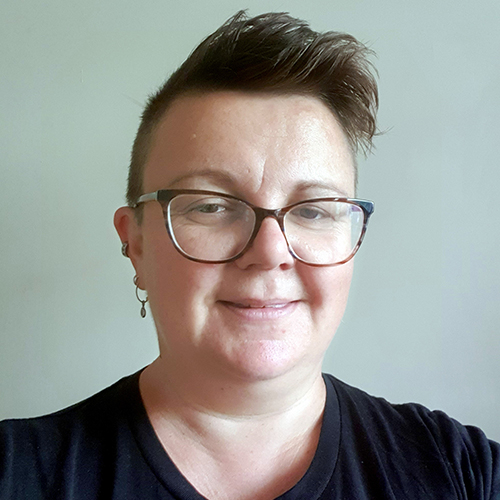

Kathryn Stagg is mum to 4 boys, twins and 2 subsequent singletons. She trained as a breastfeeding peer supporter and volunteered in the groups for years in and around Harrow, NW London, UK.
Kathryn caught the breastfeeding support bug and decided to further her knowledge training as a Breastfeeding Counsellor with the Association of Breastfeeding Mothers and then qualifying as an IBCLC 5 years ago.
Kathryn started Breastfeeding Twins and Triplets Facebook group almost 8 years ago and it now has over 9000 members. It has recently been made into a UK charity. Kathryn is passionate about delivering high quality breastfeeding support to as many twin and triplet families as possible, creating resources and educating health care professionals and breastfeeding supporters. She runs a small private practice and continues to teach music part time, her original career path. Kathryn is the author of Breastfeeding Twins and Triplets; a guide for professionals and parents.
/p>
Topic: Don't Let Us Fool You: Breastfeeding in Late Preterm and Early Term Babies - [View Abstract]
1. Name 3 reasons babies born late preterm may struggle to establish breastfeeding
2. List 3 ways to recognize signs of progress on the breastfeeding journey and when intervention might be needed
3. Describe 2 ways to protect the breastfeeding relationship and provide encouragement to the lactating parent when breastfeeding is improving more slowly than expected
Late preterm and early term birth is a barrier to establishing breastfeeding. These babies are often well enough to stay with their mothers and treated like a full term baby. Yet they are often sleepy, uncoordinated and inefficient at the breast leading to a higher chance of unstable blood sugar, weight issues, jaundice and low milk supply. This leads to a high rate of supplementation. Skilled breastfeeding support is the key to helping these babies breastfeeding effectively. This presentation will discuss anticipatory guidance in relation to an early birth, how to protect breastfeeding during the first few days and weeks, and how to move towards exclusive breastfeeding should supplementation be necessary.
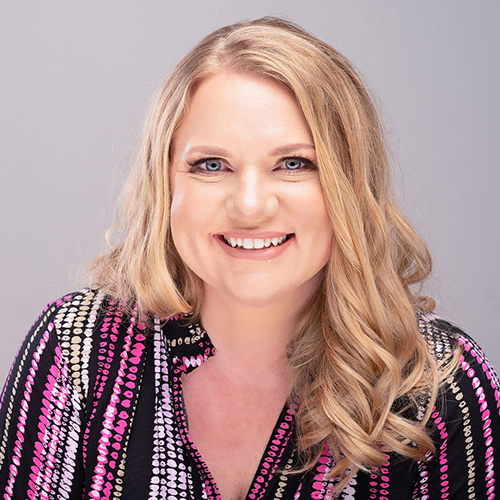

Bonnie Holt Logsdon (she/her), is a Registered Dietitian, International Board Certified Lactation Consultant, and Certified Lactation Educator™ through CAPPA, and a DONA-trained birth doula with over 18 years of experience in community-based practice.
In her private practice, Bonnie Knows Breast, she blends her nutrition and lactation work to support families during the prenatal and postpartum periods. Bonnie also mentors IBCLC candidate students, teaches the Certified Lactation Educator (CLE) course, and offers public speaking on lactation and nutrition-related topics.
Bonnie is committed to giving personalized, affirming care and education to each family, individual, and professional she works with! Supporting families during this critical and emotional time in their lives is such important work. Bonnie promises compassionate, non-judgmental support and information.
Bonnie and her husband Brent, have a 7-year-old son, Finley. They enjoy quality time together playing board games, cooking, traveling, and hiking in as many National Parks as possible.
The mission of Bonnie Knows Breast is to empower people with education to make informed decisions related to their health and the health of their babies. Bonnie supports families of all backgrounds, structures, and identities and believes everyone deserves to be supported in their journey.
1. Define 3 elements of the concept of diet culture and its impact on early postpartum
2. List 3 myths surrounding weight and lactation
3. Recite 2 of the 5 principles of the “Health At Every Size” concept
The medical community spends a lot of time and energy discussing weight as it relates to health. This message becomes a focus particularly in the postpartum period when people begin to think about “dropping the baby weight”. A frequently shared statement about breastfeeding is that it may cause weight loss. This information can be the driver for some to decide to breastfeed.
Weight stigma is a topic that surrounds our tiny clients as early as in the womb when we talk about delivering a “big baby” or as we focus on growth charts and weight gain for babies which can be a big trigger for the parent who may have a past history of disordered eating. Comments about a baby being “too big” or having reached a certain weight and now needs solid foods sooner are often discussed.
What do our intake forms ask as it relates to weight or past history of eating disorders? How does our office furniture function to seat people comfortably with all body types? How do we communicate to clients about food intake and the impact of lactation, appropriate weight gain for a baby, or the benefits of breastfeeding?
As healthcare professionals, we have to acknowledge our own biases around weight stigma and actively work to change the way we practice to be weight inclusive for the dyad.
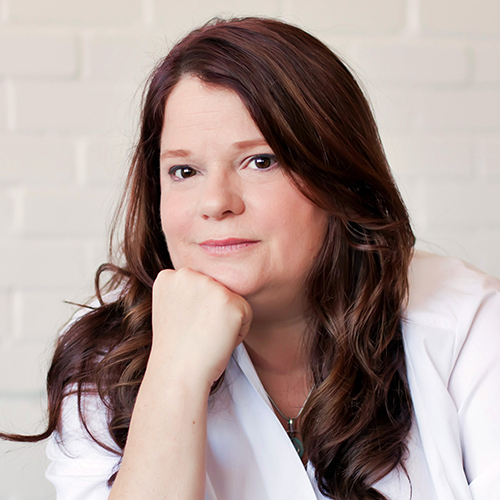

Barbara D. Robertson, IBCLC, has been involved in education for over 34 years. She received a Bachelor’s degree in Elementary Education in 1988 and her Master’s in Education in 1995. Barbara left teaching elementary students in 1995 to raise her two children. Barbara is now the Director of The Breastfeeding Center of Ann Arbor and of the brand new business LactaLearning.
The Breastfeeding Center of Ann Arbor will still continue to serve breast/chestfeeding families and now LactaLearning will be dedicated to all of Barbara’s professional lactation trainings. Barbara has developed two 95 hour professional lactation training, a group training and a completely self study training with Nancy Mohrbacher. Barbara’s idea of creating professional book groups has exploded with her hosting Making More Milk with Lisa Marasco, Supporting Sucking Skills with Cathy Watson Genna, Breastfeeding Answers, 2nd Edition with Nancy Mohrbacher, and new for the fall, Safe Infant Sleep with Dr. James McKenna. Barbara will be hosting a one day online conference in the fall with Lisa Marasco and Cathy Watson Genna using all of her tech savvy skills to make this a one of a kind experience. Barbara is also a speaker for hire on a wide variety of topics including Motivational Interviewing. Barbara volunteered for the United States Lactation Consultation Association as the Director of Professional Development for 4.5 years.
She just retired as Associate Editor for Clinical Lactation, a journal she helped create for USLCA. Barbara has free podcasts, a blog, and Youtube videos which can all be found on her websites lactalearning.com and bfcaa.com. She has written many articles as well. She loves working with parents and babies, helping them with breast/chestfeeding problems in whatever way she can.
Topic: Breastfeeding: Baby’s First Milestone - [View Abstract]
Topic: Clinical Assessment and Management of Low Milk Production - [View Abstract]
Topic: Deconstructing Online Messaging: Ethical Considerations - [View Abstract]
Topic: Milk Sharing and Milk Banking: Building Knowledge for Better Outcomes - [View Abstract]
Topic: The Baby's Not Gaining Weight! Now What? - [View Abstract]
Topic: The Great Nipple Shield Debate - [View Abstract]
1. List three biomedical ethical principles and explain how they apply to the use of human milk.
2. Describe the difference between milk sharing, for-profit human milk banking, and non-profit human milk banking.
3. Explain the process of donating to and obtaining human milk from a HMBANA human milk bank.
4. List three reasons why human milk in critical for pre-term human babies.
Humans have been sharing their breastmilk for the benefit of other babies for thousands of years. In this presentation, we will be looking at how a baby might have access to human milk if their parent cannot provide it themselves. The history and current practices of milk banking, both for profit and non-profit, will be covered as well as milk sharing.
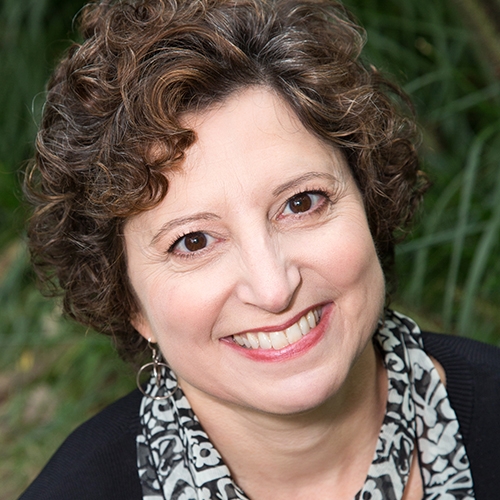

Alyssa has been helping parents and babies with breastfeeding since 2002, first as a La Leche League Leader and since 2009 as an International Board Certified Lactation Consultant.
Alyssa works in private practice serving clients worldwide, primarily through telehealth. She is the author of Breastfeeding Without Birthing: A Breastfeeding Guide for Mothers Through Adoption, Surrogacy, and Other Special Circumstances and a professional supplement to the book, The Breastfeeding Without Birthing Professional Pack online training.
Alyssa has authored articles for The Journal of Human Lactation: The Three Step Framework for Inducing Lactation and Successful Co-Lactation by a Queer Couple: A Case Study. She has also authored articles for La Leche League’s Leader Today and Breastfeeding Today magazines, and Adoptive Families magazine. She is an international speaker on the topics of inducing lactation, relactation, and other related topics. Alyssa is the proud mother of three breastfed children, two by birth and one by adoption. She lives in St. Louis, Missouri, USA.
Topic: Demystifying Inducing Lactation: How Lactation Happens Without Pregnancy and Birth - [View Abstract]
Topic: ReLATCHtation: Transitioning the Exclusively Bottle-fed Baby to Nursing - [View Abstract]
Topic: Supplementation: A Goldilocks Dilemma - [View Abstract]
Topic: The Proficient Pumper - [View Abstract]
1. List 2 circumstances which can result in long-term lactation insufficiency
2. Describe 2 ways to determine whether baby is getting enough milk
3.Create a plan to supplement a baby’s intake, including volume calculation and supplementation device selection
Too much supplementation means baby is getting less of the parent’s own milk, and eventually, there is less milk production for the parent. Too little supplementation means baby is not fed enough. So how do we find that juuuuust right amount? Or determine whether supplementation is really necessary? When it is necessary, how do we supplement in a way that preserves long-term breastfeeding outcomes? This presentation can serve a guide for if, when, how and how much to supplement direct breastfeeding with additional human milk or infant formula.
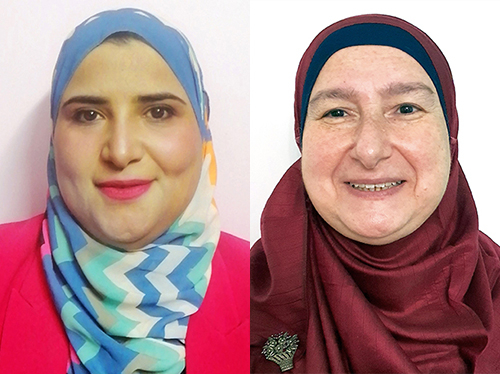

Dr. Fayrouz Essawy, pediatrician, neonatology consultant, an international board-certified lactation consultant, Neonatology Egyptian fellowship trainer, a baby friendly hospital initiative coordinator and associate alumni, Harvard Medical School Harvard Graduate of Training Of Trainer program 2020. Harvard Graduate of Egypt Clinical Scholars Research Training (CSRT) program 2021. Member of the Egyptian Society of Pediatrics Member of the Egyptian Lactation Consultants Association (ELCA) Member of the Academy of Breastfeeding Medicine (ABM) Member of the International Lactation Consultant Association (ILCA).
Amal Aly Roshdy Hassan Eltawil is a graduate of Faculty of Medicine, Cairo University, class of 1986 who obtained Masters of Pediatrics in 1992 from Faculty of Medicine, Cairo university, and Doctorate of Pediatrics from Al Azhar university in 2002. Amal became an IBCLC in 2003. Since 2004 she has been providing a pre-exam course for the Egyptian Lactation Consultants' Association of which she is a board member, treasurer and education coordinator. She is also a member of the Advisory committee of IBFAN Arab world since 2012. Amal is a member of ILCA since 2008 and a member of the Academy of Breastfeeding Medicine (ABM) since 2009. She became a fellow and Board member of ABM in 2021.
1. List 3 potential causes of unusual milk colors
2. Describe 2 potential causes of pinkish breastmilk
3. Describe 2 potential causes of brownish breastmilk
4. Compare management of clinical cases with unusual milk colors
Breast milk can appear in many different colors. Most of the time these colour variations are normal, but sometimes they are an indicator of disease and it's important for care providers to know the difference. The presence of an unusual milk color, especially with colostrum, may also be a barrier to exclusive breastfeeding as it can be worrying for parents. This presentation will examine some of the various colours of breastmilk such as blood-stained, blue, and bluish-green, pink and brownish. Case studies will help identify the causes of these colour variations and when to consider underlying disease.
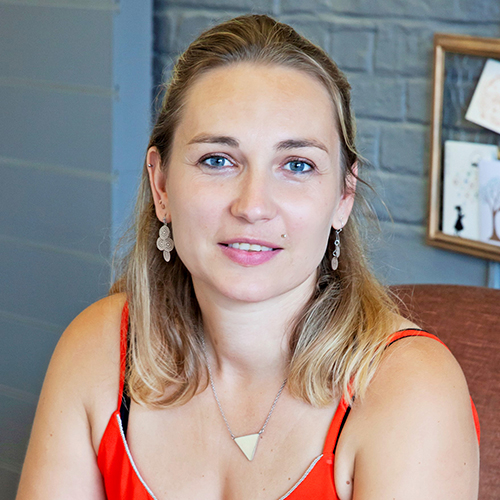

Joke graduated as a Midwife in 2006 and a Master in Midwifery in 2008. She obtained the IBCLC lactation consultant degree in 2011. She graduated in specialised applied pharmacology in 2015. She has experience as midwife and lactation consultant in her own primary care practice, lecturer at the University College Brussels, head editor of the Flemish Journal of Midwifery and board member of the Flemish Organisation of midwives and ELACTA. At the moment Joke is also a researcher on COVID-19 vaccination during lactation at the University of Brussels.
Topic: Ready-Made Educational Breastfeeding Material to Improve Parental Education and Empower Parents. - [View Abstract]
1. Describe 2 differences and working mechanisms of different vaccine platforms currently in use
2. Explain 2 effects of COVID-19 vaccination during breastfeeding for both the lactating parent and infant
3. List 3 elements of safety of COVID-19 vaccination which should be explained to lactating parents
Breastfeeding parents will encounter the SARS-CoV-2 virus and may contract COVID-19. The availability of new vaccines against COVID-19 created a need for guidance about vaccination during lactation. We aim to get an insight into the effects of COVID-19 vaccines during the lactation period. This entails the safety of vaccination during lactation, the immune response in lactating women and the excretion of immunological factors in breastmilk. Not a lot is known about the transfer of immunoglobulin A (IgA) and the mechanisms by which these antibodies provide protection to the neonate via breast milk. This presentation contributes to the knowledge of SARS-COV-2 infections and the use of different vaccine-platforms during breastfeeding and will benefit the population with respect to public health. As vaccination during lactation could result in clinically relevant sIgA-titers in breastmilk and protecting the child in early life, it is of importance that women have this information to decide whether to take the vaccine.
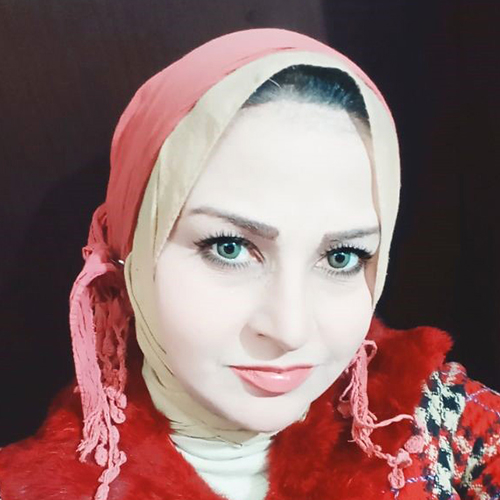

Pediatrician, neonatology & Clinical Nutrition physician with 19 years’ experience, and IBCLC since 2008. A board member @MILCC. An Associate Alumni, Harvard Medical School & affiliate member @WABA and member @Task force analysis committee@IBLCE.
A volunteer@ILCA (conference committee, equity, study, research and publications and webinar task modules) since 2018 and currently.
A trainer at the Egyptian Board of Pediatrics and a former member committee of the Egyptian Board.
In July 2022, she was nominated for USLCA award winner reward, assigned for excellency in breastfeeding medicine. Among USBC Equity champions 2023.
An “IBCLC & ILCA Award Winner” 2021, award to the most effective lactation consultant worldwide.
In December 2021, she was selected as one of four leaders responsible for the Technical Assistance @ United States Breastfeeding Committee, responsible for training and technical assistance to the breastfeeding network of the state.
She has been selected on 2018 as an expert on the IBLCE® Practice Analysis Task Force. She was nominated as a fellow of ILCA the year 2021.
Her current book “The Ultimate Breastfeeding Study Guide” was released in January 2021, a reference book for healthcare professionals interested in Breastfeeding medicine.
An international speaker at organizations supporting breastfeeding medicine; TalkTools, ABM, ILCA, iLactation, USLCA, Breastfeeding conferences, Australian Live Events and Appalachian Breastfeeding Network webinar series.
1. Define 2 ways in which a vegan diet affects the lactating person, their milk supply and their baby
2. Explain 3 ways a vegan lactating person can create a plan for meeting their own lactation goals
3. Describe 3 common misconceptions regarding breastfeeding and lactating while vegan
The nutritional composition of breast milk is impacted by maternal diet. With vegan breastfeeding mothers, a common concern is that their dietary restrictions could affect their milk supply or limit the milk constituents. Research however shows that vegan mothers are capable of producing nutritionally valuable milk for their infants, as long as the appropriate supplementation of the mother's nutritional requirements is provided. This presentation will review existing knowledge on the variability of specific nutrients in breastmilk of mothers adhering to a plant-based diet and how to create a plan that takes into account both the mother's and infant's nutritional requirements.


Lucy is an International Board Certified Lactation Consultant (IBCLC) Holistic Sleep Coach (HSC), public speaker, and author on the topic of lactation. She is also a qualified counsellor, child and is qualified in child development and child psychology.
Lucy runs a small but thriving Private Practice based on the South Coast of the UK but sees clients internationally. As a single mother of two boys who were hard to breastfeed, and as someone with ADHD, Lucy truly understands the highs and lows of parenthood both for neurotypical families and those who may have additional challenges.
Lucy’s approach is strongly underpinned by the belief that parents are the only true expert on their child, and that parental instinct is rarely wrong. Lucy uses listening and counselling skills first and foremost in her work, and prides herself on striving to provide a safe and inclusive space for everyone.
Topic: When Baby Says No: Assessment and Management of Breast and Bottle Refusal - [View Abstract]
1. Name 3 potential causes of breast and bottle refusal
2. Explain 2 facets of the psychological impact of feeding aversion on the dyad
3. Describe 3 techniques to support the dyad with overcoming feeding difficulties
Breast or bottle refusal can be distressing for parents and present a significant challenge for professionals. There are many underlying reasons why infants may display feeding aversion. These are often multi-layered and typically include emotional as well as anatomical or physical difficulties. During this presentation we will consider the causes of both breast and bottle refusal, looking at how these may present under different circumstances. We will explore how refusal impacts the parent – infant relationship and maternal self-efficacy. Once we have a clear, holistic picture regarding the complexities of feeding aversion, we will look at ways to support the dyad to overcome their difficulties including through working with other professionals. For those parents who find they cannot overcome the challenges they face, we will look at ways to help them reframe the experience and shift feelings away from failure and towards success.
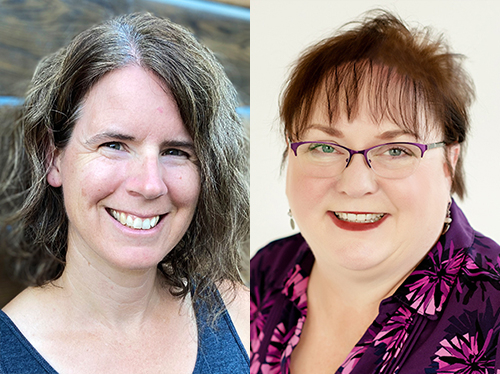

Carrie Cohen, MA, MS, IBCLC in an instructor with the University Studies Department of Portland State University. Her Senior Capstone course, “Current Issues In Pregnancy and Birth” has partnered with the Family Preservation Project of the YWCA of Greater Portland on various projects to support families prenatally through postpartum and beyond while incarcerated. Additionally, she works as a lactation consultant serving families in Oregon and SW Washington in the United States.
Lesley Mondeaux has served as the Executive Director of Northwest Mothers Milk Bank since it opened its doors in 2013. Formerly serving on the board of directors she helped in the effort to bring a nonprofit milk bank to the Pacific Northwest. She is a registered nurse and lactation consultant with over 30 years’ experience working with mothers and babies in labor and delivery, postpartum, and outpatient breastfeeding support. In 2011 she was awarded the Oregon March of Dimes Nurse of the Year in Maternal-Child Health. She is active in the Human Milk Banking Association of North America, currently serving as the conference chair and member of the accreditation committee.
A native Oregonian, Lesley lives with her husband of 36 years. She has four amazing children.
Following this session, participants will be able to:
Objective 1. Identify 3 barriers families face when providing breastmilk to an infant while the lactating parent is incarcerated
Objective 2. Describe benefits associated with maintaining lactation and access to breastmilk for both the parent and infant when separated due to incarceration
Objective 3. Identify 3 ways organizations can provide lactation and/or breast health support to mothers, infants, caregivers and carceral facilities.
Lactation support in US prisons and jails continues to be limited in access and scope. Up to the COVID pandemic, the rate of women incarcerated in the US rose by 800% since the 1980s. Approximately 60-80% of these women are the parent of a minor, many the primary caregiver of their child/children. Every year, approximately 10% of women entering custody are pregnant. Native American, Black/African American and women of lower educational attainment and socioeconomic standing are also overrepresented in American prisons, perpetuating cycles of intergenerational trauma and health disparities.
Enabling mothers/lactating parents to breast-feed or express milk for their infants while in custody has the potential to reduce the harm associated with infant-parent separation. Mothers have expressed positive mental health impacts from the act of milk expression and knowing their milk was reaching their infants. The availability of lactation support can help mothers manage breast health throughout the postpartum period. Infants maintain connection with their parent, while receiving all the benefits human milk brings.
Milk Banks can play a unique role in their ability to support infants, parents-in-custody and caregivers through their expertise in human milk handling, transportation and storage. Our presentation will highlight the Expressions of Care program of the Northwest Mothers Milk Bank: to provide a potential model of how organizations might further expand infant access to human milk within this important and often-overlooked population.


Carol Smyth is an IBCLC and Cognitive Behavioural Psychotherapist working in both Primary Care and in private practice in Northern Ireland. With a background in psychology she is driven by a passion to promote attachment based and trauma informed care to families and babies. She is the author of the Why Infant Reflux Matters book, both an HCP education resource and a self-help book for families worried about their baby’s reflux and unsettled behaviours. When working with parents she aims to increase understanding of normal (often misunderstood) baby behaviours and to explain why these are often different from what we expect. This understanding helps to lower parental anxiety and promotes attachment strategies proven to reduce crying.
Topic: What Does Breastfeeding Mean for Fertility? - [View Abstract]
1. Describe 2 ways in which lactation affects the menstrual cycle
2. Assess the efficacy of breastfeeding as a contraceptive / the impact on family expansion
3. Define 3 ways pregnancy affects lactation, and/or how lactation may affect pregnancy
The impact of breastfeeding on fertility has been neglected by research in recent years. There can be significant variation in when the menstrual cycle returns for parents, which can impact their plans for family expansion. Some who conceived easily before breastfeeding, can find it much more difficult to conceive while breastfeeding. Some who struggle with recurrent miscarriage can wonder if breastfeeding is impacting their ability to carry to term. Many are left wondering whether to wean their nursling in order to conceive again, which can be a very difficult decision to make, when that conception is uncertain. This presentation will review the research on how breastfeeding affects the menstrual cycle, how fertility is initially suppressed and how it returns, the ongoing effect that breastfeeding can have on fertility, how to use breastfeeding as a contraceptive method (if desired), how to maximise chances of conception (if desired) and whether it may affect a pregnancy after conception has occurred.
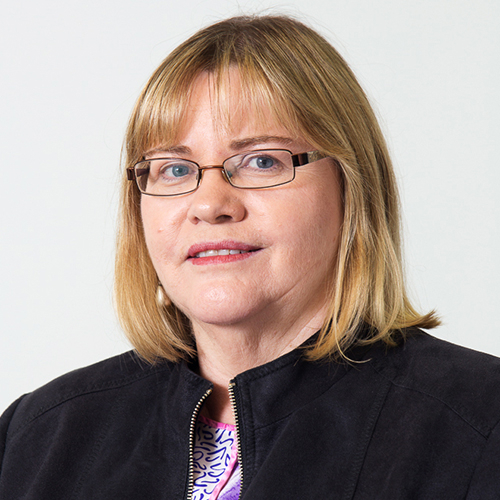
 Treasure McGuire,
PhD, BSc, BPharm, GradDipClinHospPharm Adv Prac Pharm, GCHEd, CertIVTAE, FACP, FPS
Treasure McGuire,
PhD, BSc, BPharm, GradDipClinHospPharm Adv Prac Pharm, GCHEd, CertIVTAE, FACP, FPS

Associate Professor Treasure McGuire is a clinical pharmacist, educator, and researcher. She holds two senior appointments in her hospital role (as Assistant Director of Pharmacy, Practice and Development, Mater Health Brisbane) with 1) Bond University Medical School (as Associate Professor of Pharmacology and 2) The University of Queensland School of Pharmacy (as Associate Professor, Clinical). She is passionate about improving the consumer voice and health outcomes for mothers and babies through the development and access to more effective and safer approaches towards medicines use.
Treasure’s research is translational and evidence-based, focusing on patient centred-care and quality use of medicines in women’s and newborn health, medicines information, medication safety and complementary medicines. She has published widely and authored the chapter on Safe use of drugs while breastfeeding In Brodribb W, ed. Breastfeeding management in Australia, 5th ed, Melbourne: Australian Breastfeeding Association, 2019. She is a regular invited speaker at national and international conferences, with over 60 keynote addresses. In recognition of her services to medicines information, she received the Lilly International Fellowship in Hospital Pharmacy. In 2015, she was the recipient of the Sr Eileen Pollard Medal (Mater Research-UQ) for excellence in incorporating research into clinical care provision.
Objective 1: Describe the pharmacology, ways cannabis is used therapeutically and as a recreational drug by breastfeeding mothers and its transfer into breast milk
Objective 2: Explain safety and practical considerations for cannabis use in breastfeeding
Objective 3: Describe realistic goals and strategies around harm minimisation.
 Treasure McGuire,
PhD, BSc, BPharm, GradDipClinHospPharm Adv Prac Pharm, GCHEd, CertIVTAE, FACP, FPS
Treasure McGuire,
PhD, BSc, BPharm, GradDipClinHospPharm Adv Prac Pharm, GCHEd, CertIVTAE, FACP, FPS
Cannabis is the most consumed psychoactive drug, with global estimated use approaching 200,000 million people. Legalization in different countries, together with apparent safety perception, has led to increased cannabis use by up to 5% of pregnant and breastfeeding women. This presents significant challenges for health professionals who promote breastfeeding. As central nervous system drugs need to be sufficiently lipophilic to pass the blood brain barrier, there will be extensive cannabis passage into lipophilic breast milk. Pre- and post-natal exposure is likely to impact not only on the mother but may also induce neurobiological alterations in the infant that persist beyond the first 1000 days of life. This presentation will take an evidence-based approach to outline the pharmacology, potential benefits, and risks of the main cannabinoids (THC and CBD) used in their various dose forms (ingested oils, topical gels or inhalation of buds by pipe or vaporizer). It will focus on the available evidence, potential consequences, and considerations when cannabis is used in lactation. Regardless of personal opinion, it is imperative that women feel comfortable to ask questions of their primary health care professionals about cannabis use or misuse while breastfeeding, to promote harm minimization.


Sonia Semenic is an Associate Professor at the Ingram School of Nursing, McGill University (Montreal, Quebec, Canada) and a Nurse Scientist at the McGill University Health Center. After many years of experience as an IBCLC and Clinical Nurse Specialist in maternal-child health, Sonia completed a PhD in Nursing and postdoctoral training in community health. Her research aims to better understand the process of knowledge translation (KT) in perinatal health, with a particular focus on the implementation of evidence-based practices to protect, promote and support breastfeeding. She currently co-leads the Knowledge Translation Platform for the Quebec Nursing Intervention Research Network, and teaches graduate courses on knowledge translation in nursing practice.
Topic: Moving from Evidence to Practice: Knowledge Translation and Breastfeeding Support - [View Abstract]
1. Name 3 peer-reviewed research articles related to the short- and long-term impacts of lactation on maternal cardiovascular outcomes
2. List 2 of the roles of oxytocin on the cardiovascular system
3. Explain 2 evidence-based associations between lactation, metabolic syndrome and cardiovascular outcomes
4. Define high-risk groups for targeted promotion of breast/chest-feeding to optimize cardiometabolic health
There is mounting research evidence that lactation is associated with both short- and long-term benefits for maternal cardiovascular health. Observational studies have found that lactation can lower maternal blood pressure, risk of metabolic syndrome, and other markers of cardiovascular risk (Rameez et al, 2019; Qu et al, 2018), and a recent meta-analysis involving more than 1 million individuals concluded that breast/chest-feeding is associated with a 10% lower risk of fatal and non-fatal cardiovascular disease or stroke in later life (Tschiderer et al, 2022). Potential explanations for the cardioprotective impacts of lactation include the role of lactation in postpartum lipid metabolism (Countouris et al, 2020), beneficial effects of oxytocin on the cardiovascular system (Jankowski, 2020), and the role of oxytocin in the stress response (Brunton et al, 2008). However, the relationship between lactation and cardiovascular outcomes is complex and may be mediated by such factors as obesity and metabolic syndrome (Stuebe, 2015). This presentation will review the latest research evidence related to the association between lactation and cardiovascular outcomes, and provide guidance on how to promote breast/chest-feeding for maternal cardiometabolic health.
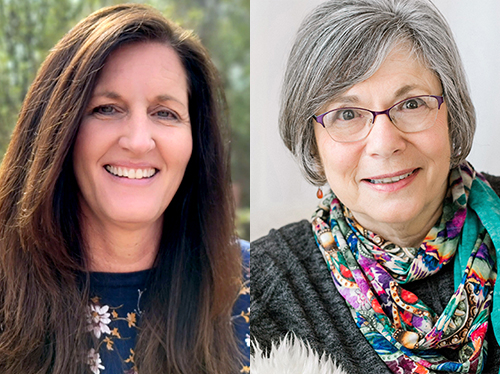

Andrea Herron, is one of the first and longest continuous certified pediatric nurse
practitioners in the United States. After more than 40 years working with breastfeeding
mothers and their babies and teaching parenting classes, she is among one of the
most experienced consultant in the field of lactation. Regardless of the issue or concern,
Andrea has guided thousands of mothers to meet their breastfeeding and early parenting
goals through support groups, lactation consultations, and childrearing education. After
receiving a Master's in pediatric nursing from UCLA, Andrea became an early pioneer in
the back-to-breastfeeding movement, and educated health professionals as an instructor
in the UCLA lactation educator course, all over the United States. Her private lactation practice,
Growing with Baby in San Luis Obispo, California, was used as the national model for
private practices by Women Infant and Children (WIC), the federally funded health and
nutrition program. One of her favorite and most popular topics she teaches through her
Growing with Baby parenting groups is, Understanding Your Infant’s Temperament.
This topic and many of the other topics she teaches are included in her newly released
book, Suckle, Sleep, Thrive: Breastfeeding Success Through Understanding Your Baby’s
Cues. Co-written with Lisa Rizzo.
Andrea has been married to Larry Herron, an orthopedic spine surgeon,
for over 35 years. They are the proud parents of a grown son,
two Labradors, and a cat. The couple reside in Shell Beach,
California.
Lori has worked with high-risk infants/children and their families for 30 years. She graduated from Colorado State University with a degree in Occupational Therapy. In 1996, she became certified in Pediatric Neuro-developmental Treatment. In 2004, she acquired an Advance Practice Certification in Feeding, Eating, and Swallowing.
After graduation, she worked at Simi Valley Hospital, Child Development Center. In this setting, Lori provided occupational therapy services to children age birth to 16 years old with a variety of diagnoses and needs. For the past 17 years she has been providing occupational therapy services to high-risk babies/children in their home and community as a consultant for Tri-counties Regional Center and through her private practice. Her focus has been on feeding difficulties and treating infant developmental delays. In addition, she sees patients privately and jointly with Andrea Herron RN, MN, CPNP, IBCLC, in the Growing With Baby Center. Recently, Lori has joined the NICU team at Sierra Vista Regional Medical Center as a feeding specialist.
Lori lives with her teenage son and husband in beautiful Morro Bay California.
1. List historical factors and physical findings that may alert the health professional to assess the infant for potential faulty oral motor patterns.
2. Describe normal versus abnormal oral motor patterns and sensory development.
3. Define how the role of an Pediatric occupational therapist differs from that of an IBCLC.
4. List ways that developing a joint feeding treatment plan between an IBCLC and an occupational therapist improves patient outcomes.
Oral motor coordination and sensory development are two of the most meaningful and critical developmental milestones of the infant. Sucking dysfunction is complicated and may be one of the first signs of abnormal neuro-motor development or other health comorbidities. Too frequently, without a complete assessment, if there are any challenges while feeding at the breast/chest, simple fixes are recommended or bottle feeding is implemented. left untreated these challenges disrupt breastfeeding, leading to weaning. Events during fetal development and birth may be contributing factors to faulty or dysfunctional Infant feeding. It is important to be able to identify one or more of those factors and develop a feeding plan. This may include seeking the insight and intervention of another allied health professional trained in infant feeding.
Andrea Herron RN, MN, CPNP, IBCLC, and Lori Cromer OTR/L, SCFES, have developed a team approach to feeding problems and have worked together for over 15 years. Together they have assessed and treated patients often identifying infants needing ongoing oral motor and developmental interventions. Through power point lecture and case studies they will describe their team approach, emphasizing historical and physical findings that indicate the need for specialized assessment and treatment. Several cases studied will be presented including interviews with the mothers.


Gretchen Becker Crabb is an Occupational Therapist, Licensed Professional Counselor, and Endorsed Infant Mental Health Therapist. She is also a Certified Lactation Counselor, La Leche League Leader, and Brazleton Newborn Observation (NBO) trainer.
Gretchen’s passion is rooted in fostering lifelong relationships and connection through co-regulation in pregnancy and beyond. Her unique approach to lactation support and therapy is rooted in culturally attuned sensory, somatic, and trauma-informed mental health techniques.
Gretchen owns and operates a private practice in Madison, Wisconsin. For 21 years, she has provided developmental, trauma, feeding, and attachment support for tiny humans and their caregivers in birth to three, preschool, private practice, and peer group settings. Gretchen is an international speaker, reflective supervisor, and infant mental health consultant. In these roles, she offers compassionate, experiential, and reflective holding spaces for professionals. She is a proud United States Air Force spouse and mother of three boys.
Topic: Infant Mental Health: What Does It Look Like in Practice? - [View Abstract]
Topic: Scent-Sational Connections: The Role of Olfaction in Development - [View Abstract]
Topic: Sensory Processing and Breast/Bodyfeeding: Using Co-Regulation to Support the Feeding Relationship - [View Abstract]
Topic: Vestibular Processing: Using the Sixth Sense to Support Lactation and Parent/Infant Relationships - [View Abstract]
1. List the primitive reflexes that play a foundational role in lactation
2. Describe the function, developmental continuum, and non-integration patterns for each primitive reflex reviewed
3. Define 2 basic strategies to support reflex development in lactation for parents and infants
Primitive reflexes play an instrumental role in the birth process and lactation, motor, regulatory, and social emotional skill development. Reflexes not only serve to help us develop a sense of self, but they also assist to promote meaningful interactions with other people and the world around us. In this presentation, we explore how the integration of sensory processing and primitive reflexes support parents and infants in lactation. We will also look at how the function of these reflexes can impact learning, mental health and regulation skills in infants, children, and adults. Experiential activities will be used to enhance participants understanding of each reflex and experiment with supportive strategies to use with families.
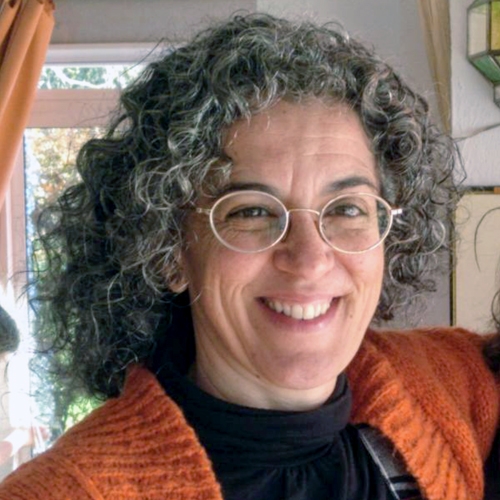

Carmela is a family medicine MD, bachelor´s degree in Public Health Education, and IBCLC since 2005. She is also a BFHI Evaluator and the co founder and past president of the Spanish Lactation Consultant Association (AECCLM). She works in a private Family Wellness Clinic, Raices, as person in charge of the lactation program, which includes two IBCLCs attending breastfeeding families and an extensive offer of breastfeeding training for health care professionals and breastfeeding peer counsellors. The team has trained over three thousand doctors, midwives and nurses from both the Spanish National Health Service and the private sector in Spain. She is a frequent lecturer at national conferences, and has also lectured internationally, both on-site and online. She is the author of several scientific papers on breast pain, mastitis and tongue tie. She is also the author of a breastfeeding/parenting book, “Amar con los Brazos Abiertos” (To Love with Open Arms). She is married to Carlos and they homeschool their four children.
Topic: Assessment and Management of Mastitis - [View Abstract]
Topic: Getting Milk Production off to a Good Start - [View Abstract]
Topic: Management of Chronic Breast Pain: Holistic Approach - [View Abstract]
Topic: The Art and the Science: A Critical Look at the Physiology and Management of Mastitis - [View Abstract]
1. Explain the importance of an ecosystemic approach to the dyad for adequate evaluation and management of breast and nipple pain
2. Describe 3 clinical causes of breast and nipple pain
3. Name 2 strategies for managing the main causes of breast and nipple pain, including which patients/clients will require referral to other healthcare providers
Although pain is not a normal part of nursing, many mothers experience this difficulty at some point in their breastfeeding journey. It is one of the main reasons for breastfeeding consultations, and an important cause of early, undesired weaning, especially if the infant is not thriving. Assessment of pain during lactation differs significantly from other types because it is a system we must explore – not a single patient but the interaction between the mother and her infant (that is, the dyad). In this talk, an ecosystemic overview of the evaluation and management of breast and nipple pain is offered, based on current research and clinical practice. With appropriate support, the vast majority of dyads are able to breastfeed comfortably and effectively.


Sejal is an International Board Certified Lactation Consultant (IBCLC) in private practice and an infant massage educator in Hillsboro, Oregon, USA. She combines her professional expertise with her personal instincts as a mother and a supportive team member.
She holds a Bachelors in Microbiology and Clinical Laboratory Science.
She also brings with her the following comprehensive toolkit: Certified Educator of Infant Massage, Formerly Certified in skin-to-skin care for full term infants from the United States Institute of Kangaroo Care Certified Provider of Innate Postpartum Care.
She has presented nationally and internationally for GOLD lactation, ILCA, community colleges, local lactation organizations.
As a lactation consultant, she believes that every individual needs to be educated about breast health, optimal infant feeding and how breastfeeding support is a basic human right and can impact world health globally.
She strives to help each family by continuing to learn all she can about breast health, breastfeeding ecology, breastfeeding movement and parent-infant connection using the neurobiological and infant mental health lens.
When she’s not with her clients, you can find her at home in Hillsboro, Oregon, USA, listening to bollywood music, hanging out with friends and spending time with her family.
Topic: Calm & Regulated: Rethinking Our Approach to Latch and Positioning - [View Abstract]
Topic: Teaching Infant Facial Massage to Parents to Support a Functional Latch - [View Abstract]
Objective 1: Describe various positions and latching techniques for lactating parents.
Objective 2: Explain 3 challenges that can interfere with optimal latching and positioning.
Objective 3: Describe 3 ways to promote parental self-efficacy and improve infant feeding outcomes.
Every interaction in lactation care with clients must set the foundation for creating an oxytocic environment. Improving client self-efficacy must be a priority for every lactation professional who works with the dyad. This presentation will dive deeper into the various factors that include not just latching and positioning but also brings attention to regulating the nervous system of the parent and baby. The presence of a lactation support professional needs to invite a neurophysiological encounter of safety in the parent and infant. This allows them to feel relaxed, unfurled, and present in the process of feeding and beyond. We will review clinical case studies, videos, photos and curious compassion for better client outcomes. Lactation professionals will be able to incorporate the ideas from this presentation into their clinical practice. They will be able to encourage client self-reliance that lasts beyond the consultation. This presentation can be used as a guide for providing a neurophysiologically inclusive feeding plan and bridging the gap between initiation and duration of breastfeeding.
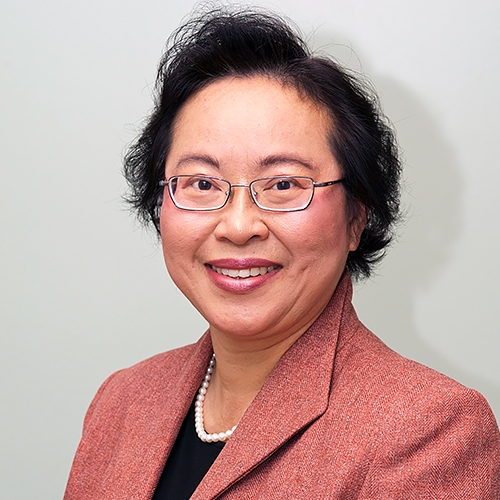

Wilai Rojjanasrirat, PhD, RN, IBCLC, FILCA, FAAN is a Professor and Director of Research and Scholarship at Graceland University’s School of Nursing in Independence, Missouri. Her background is in midwifery and maternal and child health nursing.
She is an international board certified lactation consultant. She earned her Bachelor’s in Nursing and Midwifery from Thailand and Master’s and Doctorate and Post-Doctorate in Nursing from the University of Kansas. She teaches in graduate nursing program. Her research focuses on promoting and supporting breastfeeding, psychometric development, and educational outcome evaluation.
Using telehealth in providing lactation support, evaluation of the breastfeeding outcomes among late-preterm, near term, and term infants, and evaluation of the Business Case for Breastfeeding Program’s impact among employed breastfeeding mothers in Kansas are among some of the research projects.
Dr. Rojjanasrirat has multiple publications and recently contributed to a book chapter on Employment and Breastfeeding in Wambach & Spencer, Breastfeeding and Human Lactation, 6th edition in 2021. She served as a former president of the Pi Eta Chapter of the Nursing Honor Society, a board member of the KC Board of Directors of Kansas City, Kansas, and a former president of the Greater Kansas City Lactation Consultant Association for several years.
Topic: Understanding Lactation-Related Research - [View Abstract]
1. List 3 barriers to breastfeeding
2. Describe 3 interventions that effectively improved breastfeeding outcomes
3. Explain the implication of the current review to clinical practice and future research.
Despite the many benefits of breastfeeding to both mothers and infants, the majority of women are unable to reach the recommendations of the World Health Organization of exclusive breastfeeding for the first 6 months of life and continued breastfeeding for two years or longer. It's important for health care professionals to stay up to date with the latest research to always ensure that the care they're providing is in line with current best evidence.
This presentation will present the results of a research review on the effectiveness of interventions to improve breastfeeding outcomes. A database search including PubMed, Cochrane, and CINAH were conducted to identify systematic review and meta-analysis studies in English that focused on breastfeeding interventions that addressed breastfeeding outcomes in full-term healthy newborns from 2012 to 2022. Learn more about the which breastfeeding interventions are backed by strong evidence, quality issues in certain studies, and the implications for further research.
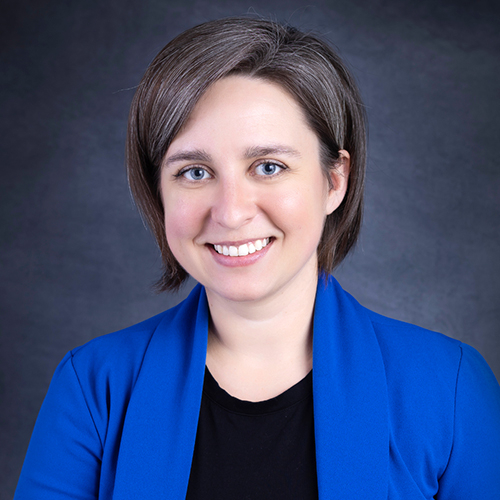

Allison Tolman has experience as an LPN, CLC, Certified Birth Doula, Certified Childbirth Educator, and IBCLC. She has found a passion for breast pumps and now works exclusively with mothers who are combining breastfeeding and pumping while returning to work after maternity leave. She (along with an engineer) developed a device used to test breast pumps and has enjoyed sharing her data and findings with her online community and helping mothers choose and use the best breast pump for them. Her husband is active duty military in the US Army and together they have 3 little boys. They have lived all over the US and spent 3 wonderful years in Belgium. She is also pursuing a bachelors in Maternal Child Health: Human Lactation at Union Institute & University.
Overall Objective: Participants will be able to identify important features of a breast
pump to effectively help mothers choose and use a pump appropriately for sufficient
and practical milk removal.
1. Explain terms and types of breast pumps
2. Describe qualities that affect breast pump performance as well as the practical
implications of different pumps
3. Evaluate strategies for appropriate breast pump selection and use
The overwhelming amount of breast pumps on the market and lack of evidence-based pumping research make it difficult for both parents and professionals to know how to choose and use breast pumps effectively. After conducting pilot testing on over 50 breast pumps with a custom designed Breast Pump Vacuum Monitoring System, we will use the graphs and data gathered to better understand the differences between pumps and which are most effective for specific pumping scenarios. We will dive into the science of breast pumps, the practical use of different types of pumps, and clinical aspects of counseling pumping parents.


Johanna Sargeant is an International Board Certified Lactation Consultant, teacher and writer based in Zurich, Switzerland. She is passionate about utilising her background in education, biological science, psychology and language to empower parents with empathetic support and evidence-based information through her private practice, Milk and Motherhood. Originally from Australia, Johanna provides much-needed English-speaking support to many thousands of parents throughout Switzerland and across Europe, and has recently been contracted to create the new education modules for the European Society of Paediactric Research and the European Society of Neonatology. She has taught at the University of Zurich, has spoken as a panelist for the WHO’s Baby Friendly Hospital Initiative congress in Geneva, has been an expert speaker and facilitator for Google, and has presented at a wide variety of international conferences. The complexities of her personal feeding experiences have led her to the establishment of the sole peer-to-peer milk-sharing network in Switzerland, and fuels her passion for providing knowledgeable, guilt-free infant feeding support globally.
Kathryn is mum to 4 boys, twins and 2 subsequent singletons. She trained as a breastfeeding peer supporter and volunteered in the groups for years in and around Harrow, NW London, UK.
Kathryn caught the breastfeeding support bug and decided to further her knowledge training as a Breastfeeding Counsellor with the Association of Breastfeeding Mothers and then qualifying as an IBCLC 3 years ago.
Kathryn started Breastfeeding Twins and Triplets Facebook group almost 6 years ago and it now has over 6500 members. It has recently been made into a UK charity. Kathryn is passionate about delivering high quality breastfeeding support to as many twin and triplet families as possible, creating resources and educating health care professionals and breastfeeding supporters. She runs a small private practice and continues to teach music part time, her original career path.
Sejal is an International Board Certified Lactation Consultant (IBCLC) in private practice and an infant massage educator in Hillsboro, Oregon, USA. She combines her professional expertise with her personal instincts as a mother and a supportive team member.
She holds a Bachelors in Microbiology and Clinical Laboratory Science.
She also brings with her the following comprehensive toolkit: Certified Educator of Infant Massage Formerly Certified in skin-to-skin care for full term infants from the United States Institute of Kangaroo Care Certified Provider of Innate Postpartum Care
She has presented nationally and internationally for GOLD lactation, ILCA, community colleges, local lactation organizations.
As a lactation consultant, she believes that every individual needs to be educated about breast health, optimal infant feeding and how breastfeeding support is a basic human right and can impact world health globally.
She strives to help each family by continuing to learn all she can about breast health, breastfeeding ecology, breastfeeding movement and parent-infant connection using the neurobiological and infant mental health lens.
When she’s not with her clients, you can find her at home in Hillsboro, Oregon, USA, listening to bollywood music, hanging out with friends and spending time with her family.
1. List 3 potential barriers lactation care providers face in setting up their lactation practice
2. Explain 3 ways lactation care providers can protect their own mental health while building a thriving lactation practice
3. Describe 3 important factors lactation care providers should consider when planning for their own professional development
This panel of seasoned lactation care providers will describe some of the ways in which they have adapted their initial ideals of lactation work to the realities of what families need as well as their own strengths and capabilities. This exploration of the panelists’ own trajectories through acquiring learning and credentialing in maternal child health is designed to offer the aspiring or new lactation care provider a wealth of ideas and resources for problem-solving and decision-making as they set off on their career in lactation care.


Ruth Patterson is Cloud Nine's P I O N E E R & Most Sought Lactation Specialist with 33 years of rich experience - currently practicing at Jayanagar C9, Bangalore-India and a visiting Lactation Consultant with 9 other Cloud Nine branches locally. She also heads the 24 Pan India Cloud Nine Hospitals as the Manager Lactation.
Ruth's 30+ years of rich experience includes maternity, allied health and nursing care, both in rural and urban sector in India & Abroad. Her exclusive 18 years of experience in Lactation services, she has acquired immense practical knowledge in the last decade to identify most critical disorders of mother and babies during breastfeeding stage. She is acclaimed to have expertise in a lesser-known art of re-lactation and induced lactation.
Ruth is known for her ability to identify the most critical issues in Breastfeeding and restore/re-initiate feeds. She is acclaimed for the use of Dynamic Taping (only available at Jayanagar C9) that arrests/prevents breast surgery/abscess. This Dynamic Taping practice, alongside, a Gynecologist, Pediatrician and Physiotherapist at Cloud Nine, is patented.
Ruth is a well sought out person for patient hearing and provides her expert comments in News columns/Media and also delivers guest lectures.
Allyson Wessells is a physical therapist, International Board Certified Lactation Consultant and co-owner of Nurture Columbus, in Columbus, Ohio. She completed a Bachelor’s degree in Biology from Ohio University in 1997, and Master of Physical Therapy degree from Northwestern University in 1999. After having a child in 2007, she volunteered as a La Leche League leader. She discovered a love for supporting new parents but a gap in lactation care, which led her to become an IBCLC in 2014. Her clinical approach to identifying and overcoming feeding challenges is unique with physical therapy foundations in posture, movement and reflexive function. Through presentations she endeavors to engage IBCLCs to know more about movement as related to human lactation, and PTs to learn about breastfeeding/chestfeeding as related to human development. As past-president (2019-2021) of the Ohio Lactation Consultant Association, she also advocates for equitable access to and health plan coverage for lactation care.
Meghan McMillin holds a Master’s Degree in Human Nutrition from the University of Illinois at Chicago. She has been a Registered Dietitian Nutritionist (RDN) since 2013 and became an International Board Certified Lactation Consultant (IBCLC) in 2019
Meghan spent 5 years working clinically in the NICU, pediatric floor and women’s units of a local hospital. In 2019, Meghan started her own private practice and consulting company, Mama & Sweet Pea Nutrition, with a focus on postpartum and infant care. The mama to two young kids with food allergies, helping other families manage food allergies, whether it’s while breastfeeding, during the introduction of solids, or later in childhood, is her passion.
Meghan is a member of the International Lactation Consultant Association and the United States Lactation Consultant Association. She enjoys sharing her knowledge through social media, freelance writing and public speaking. Meghan is the coauthor of the eBook What To Eat When Your Baby Can’t Tolerate Milk, Soy, or Egg Protein; Nutrition guidance for avoiding milk, soy, and/or eggs while lactating.
Meghan has presented both nationally and internationally including for GOLD learning, the National WIC Association and the Academy of Nutrition and Dietetics. In 2020, Meghan was awarded the Emerging Professional in Women's Health Award from the Women's Health Dietetic Practice Group of the Academy of Nutrition and Dietetics.
Meghan lives with her husband and two children outside of Chicago, IL. In her spare time she enjoys working out, allergen-free baking and having dance parties with her kids in the kitchen.
1. List 3 ways that collaborative care benefits parents seeking care for lactation challenges
2. Describe 3 situations where breastfeeding challenges may require care that is outside the scope of practice for an IBCLC
3. List 3 potential barriers to collaborative care and potential solutions
Creating a more connected, coordinated and collaborative healthcare experience closes gaps and promotes comprehensive parent centered care. This panel will explore the benefits, challenges and practicalities of working within a collaborative model of health care for lactation professionals We will explore topics such as how to establish relationships with other professionals, different models of collaborative care, potential barriers and what to do when there’s no one to refer to, scope of practice and liability and how to keep the parent as the director of their care.


Cecília Tomori is Associate Professor and Director of Global Public Health and Community Health at the Johns Hopkins School of Nursing with a joint appointment at the Johns Hopkins Bloomberg School of Public Health. She is a Hungarian American anthropologist and public health scholar whose work investigates the structural and sociocultural drivers that shape health, illness and health inequities. Dr. Tomori is an internationally recognized expert on breastfeeding, infant sleep and maternal child health.
During the COVID-19 pandemic, she has supported numerous organizations focused on maternal child health and health equity and advocated for equitable pandemic policies. She has authored three books on breastfeeding and reproduction, and published numerous articles on a range of public health and anthropological topics.
Topic: Resolving Cultural Conflicts in Nighttime Breastfeeding and Infant Sleep - [View Abstract]
1. Describe 3 elements of the structural and historical roots of the contemporary North American formula crisis
2. List 3 key industry tactics that have been employed to cover up misconduct and harmful practices and shift responsibility for infant feeding decisions from commercial milk formula corporations to individuals
3. Define 3 inequitable health impacts of the corporate practices identified above
4. Create a plan with concrete strategies to enact policies for addressing infant and young child feeding in emergencies that are accelerated with the impacts of climate change
This presentation will address the North American formula crisis that was triggered by investigations into the deaths and illness of several infants from contaminated commercial milk formula (CMF), leading to an extended shut down of a major plant and acute shortages of CMF. Infant feeding decisions are shaped by powerful, inequitable systems and this presentation will identify the corporate practices entailed in perpetuating harmful practices in this crisis and provide policy solutions for how to establish a more equitable and just system of infant feeding in a time of multiple, accelerating infant feeding emergencies due to climate change.
The second part of this 2 hour workshop will address key lessons from the 2023 Lancet Breastfeeding Series. Specifically, the presentation will review Series insights into the extensive influence of the commercial milk formula industry and outline the elements of the corporate playbook employed to increase sales and undermine breastfeeding. Additionally, the presentation will highlight sources from the extensive evidence brought together in the Series to demonstrate industry tactics ranging from scientific claims that lack evidential basis to the misconstruing of infant behavior, influencing health professionals and national as well as global regulations and policies. We will also discuss recommendations of the Lancet Breastfeeding Series workgroup to end exploitative marketing and improve support at all levels for breastfeeding and engage in discussion around opportunities to implement recommendations. This will be an interactive session with ample opportunities for questions and discussion.
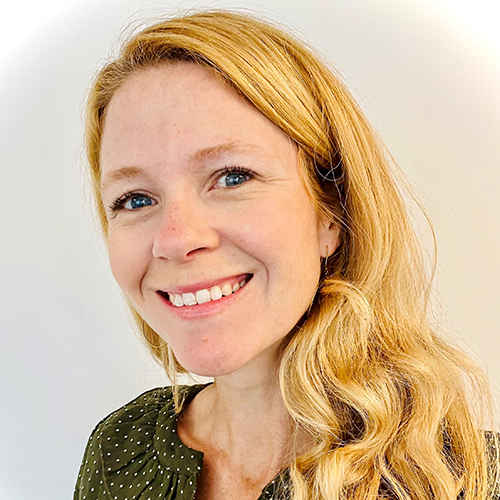

Johanna Sargeant is an International Board Certified Lactation Consultant, teacher and writer based in Zurich, Switzerland. She is passionate about utilising her background in education, biological science, psychology and language to empower parents with empathetic support and evidence-based information through her private practice, Milk and Motherhood.
Originally from Australia, Johanna provides much-needed English-speaking support to many thousands of parents throughout Switzerland and across Europe, and has recently been writing new education modules for the European Society of Paediatric Research and the European Society of Neonatology. She has taught at the University of Zurich, has spoken as a panelist for the WHO's Baby Friendly Hospital Initiative congress in Geneva, has been an expert speaker and facilitator for Google, and has presented at a wide variety of international conferences. The complexities of her personal feeding experiences fuels her passion for providing knowledgeable, guilt-free infant feeding support globally.
Topic: Mastering Lactation Conversations: Creating Successful and Achievable Care Plans - [View Abstract]
Topic: Seeing the Bigger Picture: Finding Clues in Our Breastfeeding Clients' Surroundings - [View Abstract]
Topic: When Evidence and Empathy Aren't Enough: Changing Your Lactation Practice to Boost Client Success - [View Abstract]
1. Describe 2 ways to apply cultural humility when working in the homes of families from a wide array of backgrounds
2. Name 3 signs to spot during a home visit that can signal the need for more in-depth mental health support for clients and their families
3. Recite 3 practical tips to implement at particular stages of the home visit that will ensure efficient information gathering, personal safety and time management
Home visits play an integral role in the practice of many Lactation Consultants around the world. There are undoubtedly many benefits to meeting our clients in their own space, and one of these is that we can immediately garner a wealth of valuable information within a very short period of time. Along with learning a variety of quick and easy ways to stealthily, respectfully gather vital information about important feeding practicalities, this presentation will explore mental health, cultural humility and personal safety. We will explore the array of clues and red flags that may unknowingly surround you with regard to the clients' mental health and their overall safety. Additionally, as someone who works with clientele from over 75 different countries, Johanna shares what she has learned regarding the variations and commonalities between cultures when it comes to performing home visits, and which behaviours we can adopt to ensure continued humility and respect.
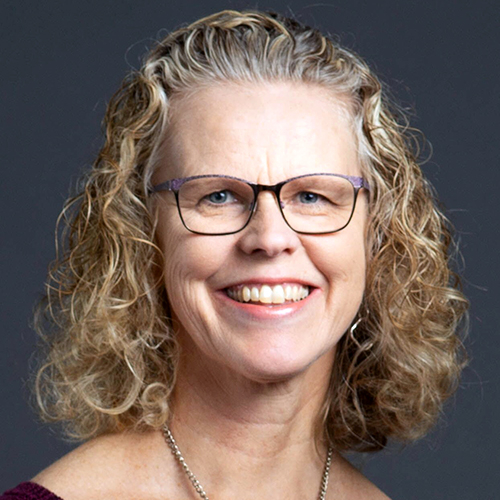

For over 25 years Sonya Boersma has supported best practice, working with mothers and babies, as well as professionals. She delivers a calm and informative consult to a diversity of clients and situations. For her it's an honour to work with new, new-again, or soon-to-be parents, tailoring care to each.
Sonya also has a broad range of experiences supporting health care professionals to provide infant feeding evidence-based care. She has been instrumental in developing resources regionally and provincially. As a provincial Health Promotion Consultant, Sonya assisted health care organizations like hospitals to progress in implementing the WHO's Baby-Friendly Initiative. She was the coordinator of provincial breastfeeding protocols, including Informed Decision Making: Infant Feeding and facilitated IDM and other workshops around the province for a variety of health care professionals.
As an IBCLC and Registered Nurse in various roles such as public health, northern nursing in Yukon Territory, Canada, as a birth doula, and as an independent Lactation Consultant, she has been fortunate to work with parents in the whole childbirth continuum.
In her spare time, she's likely outside hiking, cycling, or cross-country skiing or being with family.
Topic: Informed Decision Making: Gaining Skills & Confidence with Tricky Conversations - [View Abstract]
1: Describe 3 scenarios where informed decision-making conversations are needed
2: Define 2 relatable conversation starters for an informed decision-making conversation
3: List 3 key components of an informed decision-making conversation
It can be tricky when as health professionals, we want to build trust and support our client, and at the same time, presenting evidence-based information on infant feeding can be uncomfortable.
The purpose of this presentation is to enhance awareness, augment skills and comfort in having informed decision making (IDM) conversations, so participants can more confidently engage with their clients.
In this presentation we will review scenarios where IDM conversations are needed, explore language to begin, and discuss tips on engaging your client. We will also refresh knowledge of the risks of not breastfeeding/chestfeeding, as well as differences between direct breastfeeding versus feeding expressed breast milk. Further, we will discuss communication strategies using practical examples and provide participants with supporting resources including sample videos so that participants may confidently have conversations with clients about infant feeding that generate informed decision making.
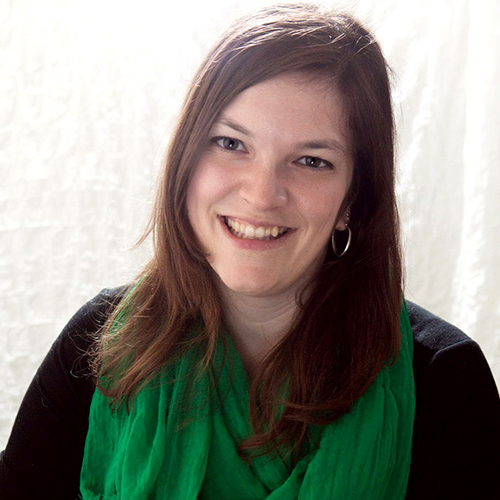

Julie Matheney knew when she was ten years old that she wanted to feed babies for a living. She earned her Masters in speech-language pathology and has worked with feeding and swallowing disorders for over a decade. While most people assume speech therapists teach children who stutter or work on ""r's and s's"", the bulk of her job is feeding and swallowing as part of a hospital based, rehabilitation team. The same things you speak with, you eat with! Over the past decade working in the NICU, she discovered her passion for working with breastfeeding families and became an IBCLC in 2018.
She transitioned out of the hospital in July 2021 and currently works full time in private practice as a lactation consultant in Los Angeles. She enjoys helping the whole family in the feeding process to meet their goals.
Her loving husband is always supportive of her in her vocational passions and was instrumental in launching her private practice. She has two young daughters, both of whom were exclusively breastfed until two years old.
Topic: Overcoming Challenges to Feeding: Supporting Parents with Physical, Mental or Socioemotional Differences - Part 1 - [View Abstract]
Topic: Overcoming Challenges to Feeding: Supporting Parents with Physical, Mental or Socioemotional Differences - Part 2 - [View Abstract]
1 Describe the variety of anatomical differences that can be present in the breast
2 Explain how anatomy impacts the physiology of lactogenesis
3 Describe common symptoms lactating parents may face and how that relates to anatomy and physiology to determine the most appropriate treatment strategies.
The human body is intricate and fascinating. Anatomy (what it looks like) determines physiology (what it does). Sometimes anatomy, because of its variable nature, can cause changes in anticipated physiology which results in clinical symptoms. This presentation focuses on how symptoms give us clues about anatomy and physiology of the breast through the lens of several clinical case studies.
Accreditation
CERPs - Continuing Education Recognition Points
Applicable to IBCLC Lactation Consultants, Certified Lactation Consultants (CLCs), CBEs, CLE, Doulas & Birth Educators. GOLD Conferences has been designated as a Long Term Provider of CERPs by the IBLCE--Approval #CLT114-07. This program is approved for 29.5 CERPs (27.5 L-CERPs, 2 E-CERPs).
Dietetic CPEUs - Continuing Professional Education Units
Applicable to Dieticians & Nutritionists, this program is approved for 29.5 Dietetic CPEUs by the Commission on Dietetic Registration - the credentialing agency for the Academy of Nutrition and Dietetics.
Midwifery CEUs - MEAC / NARM Contact Hours
This program is accredited through the Midwifery Education & Accreditation Council (MEAC) for 29 Contact Hours (2.9 MEAC CEUs).
It is also recognized by the North American Registry of Midwives (NARM) for 29 CEUs/Contact Hours. Please note that 0.1 MEAC CEU is equivalent to 1.0 NARM CEU/Contact Hour.
Nurse Contact Hours
This nursing continuing professional development activity was approved by the American Nurses Association Massachusetts, an accredited approver by the American Nurses Credentialing Center's Commission on Accreditation for 29.5 Nursing Contact Hours.
- View this presentation in its entirety, under your individual GOLD login info
- Successfully complete a post-test (3 out of 3 questions correctly answered)
- Fill out the Evaluation Survey
If you have already participated in this program, you are not eligible to receive additional credits for viewing it again. Please send us an email to [email protected] if you have any questions.
Additional Details
Viewing Time: 8 Weeks
Tags / Categories
(IBCLC) Clinical Skills, (IBCLC) Development and Nutrition, (IBCLC) Education and Communication, (IBCLC) Infant, (IBCLC) Maternal, (IBCLC) Maternal, (IBCLC) Pathology, (IBCLC) Pharmacology and Toxicology, (IBCLC) Physiology and Endocrinology, (IBCLC) Psychology, Sociology, and Anthropology, (IBCLC) Public Health and Advocacy, (IBCLC) Research, (IBCLC) Techniques, Allergies & Breastfeeding, Breast and Nipple Pain, Breastfeeding & Health, Breastfeeding & Maternal Nutrition, Breastfeeding Complications, Breastfeeding Support, Breastmilk / Human Milk, Counseling Skills, Drug & Alcohol Use, Ethics for Lactation Professionals, Feeding Devices and Tools, Human Milk Banks, IBCLC & COVID, IBCLC in Collaboration With Other Health Professionals, IBCLC in Primary Care and Hospital Setting, IBCLC Using Research, Inequalities & Breastfeeding, Infant Anatomy & Physiology, Lactation & Breastfeeding, Lactation & Fertility, Lactation Case Studies, Latch & Position, Late Preterm Infants, Maternal Anatomy & Physiology, Maternal Illness & Breastfeeding, Supplementation & Artificial Breast Milk, Supporting Sucking Skills
How much time do I have to view the presentations?
- The viewing time will be specified for each product. When you purchase multiple items in your cart, the viewing time becomes CUMULATIVE. Ex. Lecture 1= 2 weeks and Lecture Pack 2 = 4 Weeks, you will have a total of 6 weeks viewing time for ALL the presentations made in that purchase.
- Time for viewing the talks begins once you purchase the product. For Live Webinars & Symposiums, the viewing period begins from when the live event takes place. Presentations can be accessed 24/7 and can be viewed as many times as you like during the viewing period.
What are bundled lectures?
- Presentations may be available individually or via a bundled package. Bundled lectures are a set of lectures that have been put together based on a specific category or topic. Some lectures will be available in both individual and lecture form, whereas others will be available only via a bundled lecture pack.
Will there be Handouts?
- YES! Each lecture comes with a PDF handout provided by the Speaker.
Some lectures include a Q&A, what does that mean?
- During our online conferences, presentations that occur live are also followed by a short 15 minute Question & Answer Session. The Speaker addresses questions that were posted by Delegates during the presentation. We include the recording of these Q&A Sessions as a bonus for you.
How can I receive a Certificate?
- If this presentation offers a certificate, once you are done viewing the lecture or the lectures within a bundle, submit your attendance record in order to be able to download your certificate. You'll be able to see which credits are offered for the lecture by hovering over the "Credits Available" link within the "Speakers & Topics" tab.
Professionals that selected this package also viewed

|
|

|



















